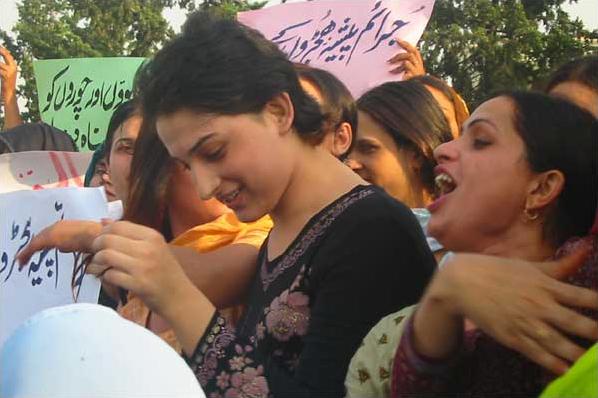
Pakistan is known for its well-known female politicians. These female politicians often make headline news in both Pakistani and global media. In the recent election, many women ran for politics and even landed seats in the provincial and federal assemblies. According to the State’s Election Commission, the number of women contesting for the general seats in the 2013 elections has increased by 130% as compared to the 2008 elections. Pakistan has a quota system that “reserves” certain seats for female politicians. And over the years, the quota has increased due to the determination of female activists to give more rights to Pakistani women.
However, many of these women politicians do not represent the majority of Pakistani females in the country. Most of these female politicians come from affluent or politically influential families. One example is the former Prime Minister Benazir Bhutto, who came from the country’s political dynasty.
For women who do not have political influence, not only is running for election impossible but some women in certain parts of the country are even deprived of their right to vote. It is common to see women vote in urban areas, such as Karachi, Lahore, and Islamabad, but women still face restriction in voting in some areas in KyberPaktunkhwa (KPK) and Federally Administered Tribal Area (FATA).
Women represent a huge proportion of the population in KPK and FATA. Guaranteeing women the right to vote is vital to strengthen the democratic process of the province and country. Elections seem to remain a male contest in this present era in certain areas in KPK and FATA. One factor that prevented many of these women to vote, especially in the rural areas, is that they do not have National Identity cards to cast a vote. Another factor is related to customs and traditions.
The tribal elders and political parties make the decisions to not allow women to vote in their local villages, towns, or cities. These men believe that women should not leave their home. They also feel that women should not be involved in politics and be more focused in their families and household chores. In the tribal communities, these women would not dare to disobey their tribal elders and this prevents them from casting a vote.
In North Waziristan, an area in FATA that borders Afghanistan, leaflets were dropped in shops to warn tribesmen to prevent their women from voting in the May 2013 elections and threatened them of consequences if they refuse to obey these orders. Other areas in FATA have also warned women not to vote in the election. In KPK, women were barred from voting in Lakki Marwat, Dir and some other areas in the 2013 elections.
Many women in KPK and FATA area still face discrimination based on their gender. Poverty remains a severe issue among many women in KPK and they continue to lack access to proper sanitation, clean water and electricity. They are also denied access to education and the pursuit of an independent economic livelihood. Several widowed women or women who do not have any support from their male relatives struggle to feed themselves and their families due to their limited rights to find employment outside their homes. Many young women in KPK and FATA are also susceptible to domestic violence, rape and forced marriage. Women’s issues will continue to be ignored because politicians and lawmakers will not even bother to campaign for their votes.
If women were given the right to vote, they may be able to have their voice heard. They would be electing the best representative for themselves and their children. Guaranteeing women’s right to vote would allow them to advocate for issues important to them and their daughters: access to education and proper health care services, access to clean water as well as address their concern with the environmental degradation of their land. They can also have the opportunity to pressure the politicians to develop laws against domestic violence, rape, forced marriage, and honour killings. KPK and FATA will continue to govern in a backward society if women continue to be denied the basic rights to vote.